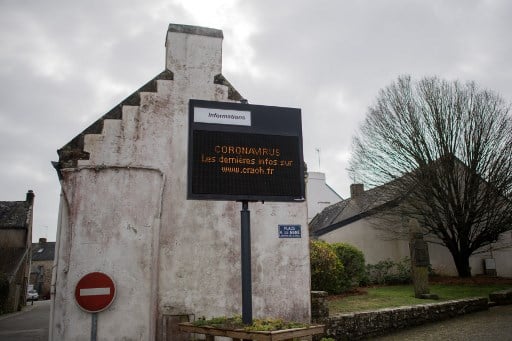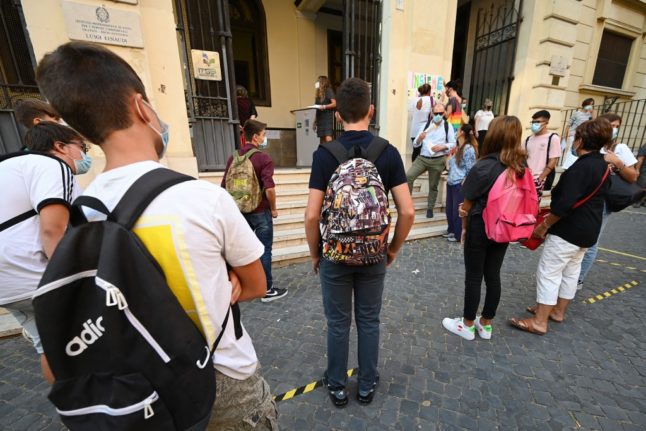The Italian government confirmed that Italy's schools and universities would close on Thursday until at least March 15 as a precaution amid the coronavirus outbreak.
The government decision was announced moments after health officials said the death toll from COVID-19 had jumped to 107 and the number of cases had passed 3,000.
(These numbers are changing constantly: view the latest figures here.)
28 more people have died in the past 24 hours, bringing the toll to 107 – the highest number of fatalities outside China – while the number of cases reached 3,089 as of Wednesday evening.
? #Coronavirus, il Governo annuncia la sospensione dell'attività didattica nelle scuole e le università di tutta Italia da domani fino al 15 marzo, in via precauzionale.
Leggi la news ➡️ https://t.co/kH81P7zyMy
#covid19italia #covid19 pic.twitter.com/yMryXuboy4— Ministero Salute (@MinisteroSalute) March 4, 2020
Rules in place for the next 30 days include no hugging or handshakes, and over-75s are advised to stay at home.
MAP: Which parts of Italy are affected by coronavirus outbreak?
On Wednesday, Reuters reported that a draft of the new emergency decree also contained a ban on public events across the whole country and provisions for the closure of all cinemas and theatres.
Numerous events have already been cancelled (CLICK HERE for full list) and sporting events will take place behind closed doors for the next few weeks at least.
Most cases are still concentrated in the “yellow zone” regions of Lombardy, Veneto, and Emilia Romagna, but all but one of Italy's 20 regions have now reported cases of the virus.
The overwhelming majority of the fatalities have occurred in Milan's Lombardy region as well as Emilia Romagna and Veneto.
Infections are slowly reaching Italy's less wealthy and developed south.
The government reported the first death south of Rome on Wednesday. It came in the Puglia region that surrounds the city of Bari in the heel of the Italian boot on the map.
A top civil protection official told AFP that most of those who have died in the past few days were in their 80s and 90s and were already suffering from other pathologies.
Top government minister spent hours huddling Wednesday to chart a way out of a health crisis that threatens to tip Italy's wheezing economy into recession and overwhelm hospitals.
Most of the steps being considered involve ways to avoid crowds and keep people from coming in contact with each other outdoors.
All these measures are meant to stay in place for a month and be reviewed and possibly fine-tuned after two weeks.



 Please whitelist us to continue reading.
Please whitelist us to continue reading.
Member comments